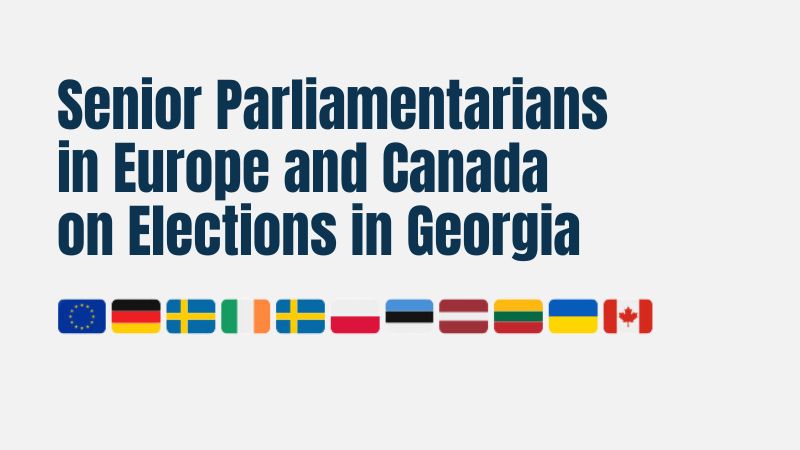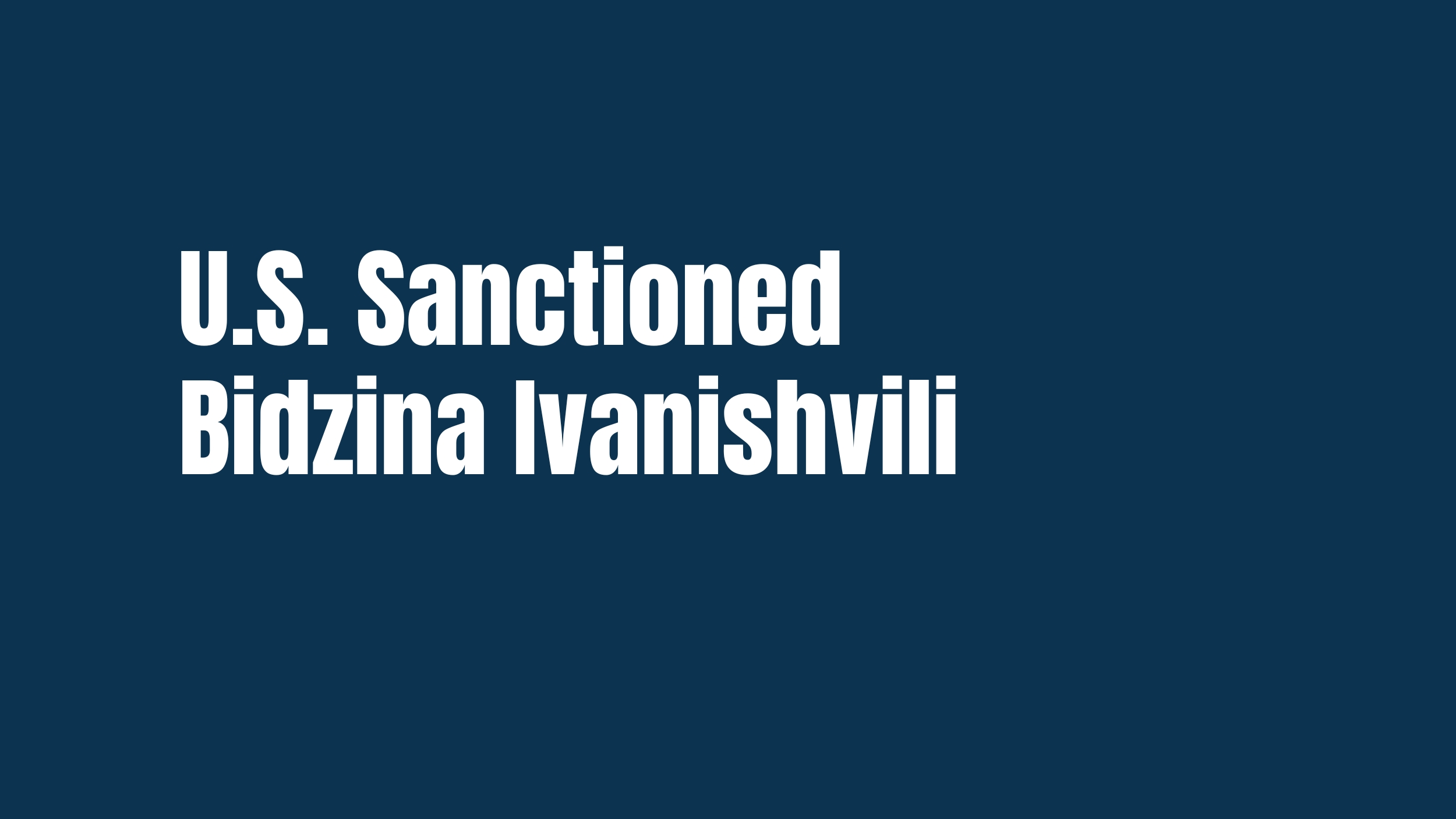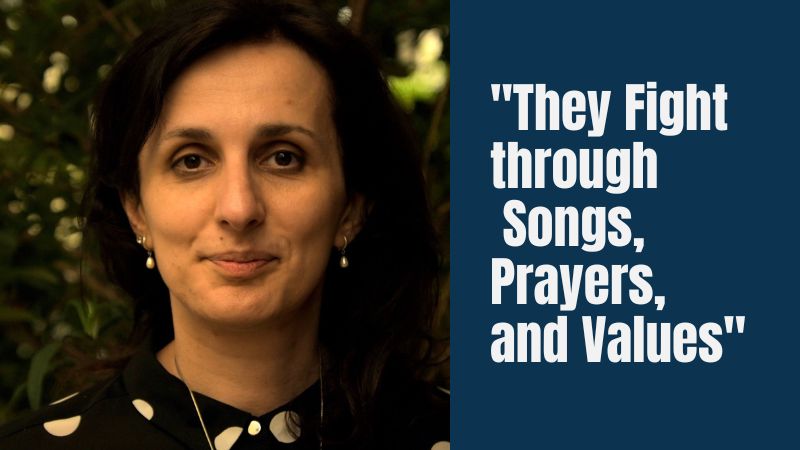On October 27, a group of Senior Parliamentarians in Europe and Canada published a joint statement, on October 26 Parliamentary Elections in Georgia. According to the statement, the election results cannot be recognized, because of the incompatibility with European standards of fairness, referring to intimidation, threatening and fraud.
Parliamentarians express concerns about “threat of persecution and prohibition of the opposition, independent media and critical non-governmental organisations” and call for personal sanctions “against those responsible for unfair electoral influence, intimidation and threats against the opposition and civil society.”
Full statement:
“Our solidarity belongs to the many committed Europeans in Georgia who share our values, strive for freedom, democracy and the rule of law. We remain convinced that Georgia deserves a place in the very heart of a united Europe.
But these elections were neither free nor fair. The political climate in the run-up to the elections was incompatible with European standards of fairness. Candidates were intimidated and threatened, state power was abused, votes were bought. The reports of the international election observer missions clearly confirm this. There is therefore considerable election fraud also through intimidation and vote buying on election day.
The country is more divided than feared between urban and rural regions, young and old.This election was about Europe or isolation, democracy or authoritarianism, freedom or Russification. Obviously, during the election campaign it did not become clear enough that there can be no continuation of the EU rapprochement with the ruling party and its policies. The policy of the Georgian Dream is simply incompatible with the EU. The perfidious campaign of fear of a “global war party” that makes Georgia a second Ukraine, fell on fertile ground. There is only one “global war party”, you should call it by name. Its name is Russia.
Against this background, the European Union cannot recognise the result.
We demand personal sanctions against those responsible for unfair electoral influence, intimidation and threats against the opposition and civil society.
Despite these massive disappointments, we must not now abandon the pro-European parts of society. We should even strengthen civil society exchanges. We reject a collective punishment such as the suspension of visa liberalisation at this time. However, we fear an exodus of the well-educated, pro-European youth. Although we welcome you to the EU, it would be a tragedy for Georgia’s European orientation.
We are very concerned about a “Belarusification” of the country. If the ruling party and its leader follow their announcements with actions, there is a threat of persecution and prohibition of the opposition, independent media and critical non-governmental organisations. The EU must make it clear to the governing party that it will not accept this and in this case a complete termination of relations will follow.
We continue to strongly support the efforts of President Salome Zurabishvili to unite the country, to defend democracy, freedom and the rule of law and to preserve and secure the European future of Georgia.”
The signatories include Senior Parliamentarians from the following countries: Germany, Lithuania, Ireland, Estonia, Poland, Sweden, Italy, Latvia, and Canada.







